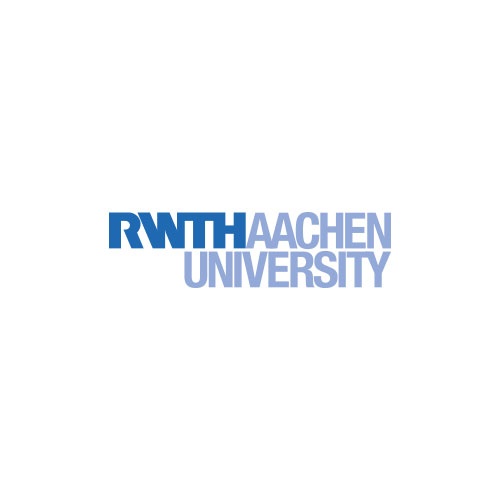RWTH: Strong European Team Improves User Acceptance for Widespread Adoption of Electric Mobility
The members of a powerful consortium are joining forces to drive the mass deployment of electric cars in Europe. The team includes 30 European companies, research institutions, and associations from 9 countries. Massive market penetration of electric vehicles requires innovative grid solutions that enable flexible charging. Intelligent charging solutions provide efficient energy exchange between vehicles, buildings, and the grid, mitigating grid constraints and promoting renewable energy integration.
On July 5, 2022, a large consortium of 30 European companies met in Barcelona to launch the FLOW project. This project aims to promote an electric mobility concept that is both suitable for the end-user and offers benefits for the energy system throughout Europe. The initiative will test, validate, and further develop what is known as vehicle-to-everything (V2X) capability for exchanging energy between electric vehicles, buildings, and the grid. The EU Parliament’s new decision to ban the sale of fossil-fuel cars from 2035 onward has reaffirmed the FLOW project’s objective to provide a solid foundation for the soon-expected mass adoption of electric vehicles.
According to the International Energy Agency, energy demand for electric vehicles will account for up to 6.5 percent of Europe’s final electricity consumption by 2030, equivalent to nearly 60 billion euros in electricity sales per year. However, introducing electric mobility in urban and rural areas faces several challenges, such as access to appropriate charging infrastructure or users’ habits regarding combustion engines. The project will address motorists’ main barriers when charging and using electric vehicles and provide solutions to these challenges.
Cristina Corchero, the consortium’s coordinator, explains: “The FLOW project represents a unique opportunity to better understand the potential of energy flexibility when we achieve electric mobility’s higher market penetration.” Furthermore, she emphasizes: “This will be possible thanks to key players from the electric and mobility sectors joining forces.”
As a part of the FLOW project, solutions are developed for all stakeholders involved in the mass development of electric vehicles, i.e. grid operators, charging point operators, mobility service providers, infrastructure manufacturers, and end-users. The main objective is to validate and quantify the benefits of electric vehicles having charging flexibility, thereby reducing grid problems and supporting decarbonization in the energy sector.
The impact on different energy systems is being studied at five demonstration sites: in the Czech Republic, Ireland, Italy, Denmark, and Spain. The project is led by the Catalonia Institute for Energy Research (IREC) and consists of a multidisciplinary team including academic partners, small, medium, and large companies from the energy and mobility sectors, and major European industry associations.
Electric vehicles will be game-changers when V2X capabilities are fully exploited. Testing energy flows and driving patterns of real users in real networks is key to achieving this goal. The results of this flagship project will inform policy and lead to best practices.
FLOW aims to make electric mobility the most important element in the European transportation sector.
Further Details About the FLOW Project
FLOW is scheduled to run for four years under the 2Zero partnership (‘Towards zero-emission road transport’). It is funded by the Horizon Europe framework program with a total budget of about 10 million euros. The consortium brings together prominent European players working on electric mobility as part of a multisectoral collaborative approach. Small and medium-sized companies in the field of charging infrastructure (Heliox), innovation management (R2M Solution), and charging station operation and aggregation services (Spirii) are involved, as well as large companies well-established in the market and boasting innovative solutions within their portfolio. This group includes a global infrastructure and grid operator (Enel Grids), distribution system operators (Areti, e-distribución, and e-distribuzione), a transmission system operator (Terna Spa), an energy management company (Eaton), several charging infrastructure technology providers, charging station operators, mobility service providers and intelligent charging service providers (Enel X Way, Endesa X Way), aggregators (Enel X, Acea Energia), an IT company (Engineering), and an automotive manufacturer (BMW).
The consortium enjoys strong academic participation from research institutions and universities that will focus on solutions for optimal configuration, control, and operation of electric vehicle chargers (IREC, RSE, RWTH Aachen University), to support interoperability, protocol harmonization and standardization (DTU, Maynooth University), for investment planning and multi-criteria evaluation (University College Dublin, TU Delft), and user engagement and satisfaction (TU Chemnitz). The consortium leverages the exceptional networks of industry associations in electric mobility (AVERE) and power grids (E.DSO).
RWTH Aachen University is one of the German partners in the project. The RWTH team aims to develop algorithms that consider the complementary needs between different V2X capable charging clusters and regulate operations accordingly. For this purpose, the SOGNO platform (developed by the team of Professor Antonello Monti), awarded the Innovation Prize of the State of North Rhine-Westphalia, will be equipped with new functionalities.

